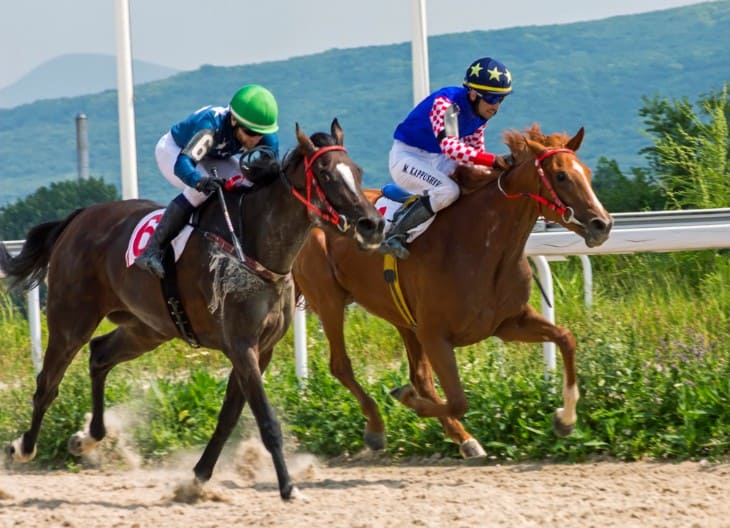Horse racing, a sport of nobility and tradition, has been a quintessential part of British culture for centuries. Its roots trace back to times when kings and queens indulged in the thrill of the race. Over the years, horse racing has evolved into a modern and dynamic industry, making a substantial contribution to the UK's economy. This article delves into the intricate tapestry of the economic impact that horse racing has woven across the United Kingdom.
Historical Evolution and Cultural Significance of British Horse Racing
British horse racing's journey from medieval pastime to modern-day spectacle is a testament to its enduring appeal. Initially, it served as a test of the nobility's finest steeds, showcasing the prowess of their bloodlines. Over time, it transitioned into a more inclusive sport, drawing spectators from all walks of life. The establishment of the Jockey Club in the 18th century laid the foundation for formal regulations and standardization, enhancing the sport's credibility.
The cultural significance of horse racing is undeniable. It has inspired literature, art, and even fashion, becoming a source of inspiration for authors like Charles Dickens and attracting enthusiasts like Queen Elizabeth II. The annual Royal Ascot event exemplifies the fusion of tradition and modernity, where high fashion mingles with sporting excellence. This blend of heritage and innovation is a hallmark of British horse racing, which manages to captivate both old and new generations.
The Racing Industry Ecosystem: Stakeholders and Their Roles
Behind the glamour and excitement of the racetrack lies a complex ecosystem of stakeholders, each playing a vital role in the orchestration of a race. At the heart of it all are the trainers and jockeys, the unsung heroes who dedicate their lives to preparing and guiding these majestic animals to victory. Their expertise, experience, and unyielding passion form the bedrock of the sport.
Supporting this human talent are the breeders and stud farms, where the next generation of champions is nurtured. These establishments meticulously pair bloodlines, aiming to produce horses with the perfect blend of speed, stamina, and temperament. It's a delicate art that requires a keen understanding of genetics and an unwavering commitment to the craft.
Racecourse owners and management teams are tasked with creating an enchanting experience for spectators. They oversee the maintenance of tracks, facilities, and amenities, ensuring that the venue is a welcoming haven for racegoers. Local communities benefit from the influx of visitors, who fill hotels, restaurants, and shops on race days, breathing life into the surrounding areas.
Economics of Racehorse Breeding and Stud Farms
The process of breeding racehorses is as intricate as it is fascinating. It all begins with the selection of top-tier stallions and mares, whose pedigree and performance serve as indicators of potential success. These equine couples are paired with great care, combining desirable traits to produce offspring that possess the genetic makeup for victory.
Stud farms are the heart and soul of this breeding endeavor. Spread across the picturesque countryside, these farms are the nurturing grounds for future champions. The rearing of young foals involves a delicate balance of nutrition, exercise, and veterinary care, ensuring that they develop into strong, agile athletes.
Once matured, these horses enter the world of racing, where they become the embodiment of generations of careful planning. Successful racehorses not only bring glory to their owners but also have the potential to generate substantial income through prize money, sponsorships, and breeding rights. The value of a champion racehorse extends far beyond the track, making stud farms a cornerstone of the UK's racing economy.

Racing Tracks and Infrastructure: Investments and Local Economies
Picture the sweeping curves of a racetrack, the stands filled with cheering spectators, and the thrill of anticipation hanging in the air. Racecourses, like theatre stages, set the scene for the drama of horse racing to unfold. These venues are more than mere arenas; they are economic engines that drive growth in their local communities.
The construction and maintenance of racecourses require significant investments. From state-of-the-art facilities to spectator amenities, these venues are designed to offer an unforgettable experience. The allure of renowned events like the Grand National at Aintree and the Epsom Derby goes beyond racing enthusiasts; it draws in tourists and generates revenue for nearby hotels, restaurants, and businesses.
Moreover, racecourses are hubs of employment. Beyond the jockeys and trainers, there's a multitude of staff involved in event management, hospitality, security, and maintenance. The influx of racegoers on event days breathes life into the surrounding areas, boosting local economies and creating a sense of community spirit.
The Role of Betting and Wagering in Horse Racing Economics
From the flutter of excitement in the crowd to the careful study of form guides, betting has been an inseparable companion to horse racing for centuries. The intricate dance between punters and bookmakers adds a layer of suspense to the sport, elevating the stakes and connecting spectators with the action on the track.
Betting isn't just a side attraction; it's a pillar of the racing economy. The revenue generated from betting activities contributes significantly to prize funds and industry operations. Online platforms have brought about a new era of convenience, allowing enthusiasts to place wagers from the comfort of their homes. The Grand National alone attracts millions of bets, highlighting the immense popularity of betting on major racing events.
While betting fuels the financial engine of the sport, it also extends its influence to local economies. Betting shops, often found near racecourses, become bustling centres of activity on race days, attracting patrons who engage in the thrill of wagering. This symbiotic relationship between horse racing and betting demonstrates how the two industries have evolved in tandem, shaping the economic landscape of the UK.
Job Creation and Employment Opportunities in the Racing Sector
Behind the scenes of every race day lies a bustling hive of activity that goes beyond the track itself. The racing sector is a wellspring of employment, offering a diverse array of job opportunities that span from the stables to the administrative offices.
Trainers and stable staff form the backbone of the industry. From feeding and grooming the horses to overseeing their training regimes, their commitment is unwavering. The symbiotic relationship between humans and horses is at the heart of this sector, creating a myriad of roles that cater to the needs of these magnificent animals.
Beyond the stables, there are event managers, marketing professionals, and hospitality experts who orchestrate the seamless execution of race days. From coordinating logistics to ensuring that every guest has a memorable experience, these roles contribute to the overall magic of the spectacle. Local economies benefit from this surge in activity, as job opportunities ripple outwards, encompassing everything from security to catering services.
Tourism and Hospitality: Horse Racing's Influence on Local Economies
Imagine a sea of vibrant hats, the clinking of champagne glasses, and the palpable excitement as horses thunder down the track. Horse racing is more than just a sport; it's an event that draws in crowds from far and wide, transforming race days into tourism magnets that inject vitality into local economies.
Major racing events like the Cheltenham Festival and the Epsom Derby are not just about the races themselves; they are experiences that extend beyond the track. Tourists flock to these events, seeking not only the thrill of the races but also the atmosphere, entertainment, and indulgence that surround them. Hotels and accommodations are booked months in advance, while restaurants and bars bustle with activity, catering to visitors who come to partake in the festivities.
The financial benefits ripple through the entire community. Local businesses witness a surge in sales, and transportation services are in high demand as visitors make their way to the racecourses. This symbiotic relationship between horse racing and tourism exemplifies the far-reaching impact that the sport has on the local economies, illustrating how it has become a cornerstone of cultural and economic significance.

Government Support and Regulations Shaping the Racing Economy
The intricate dance of horse racing is guided by a delicate balance of government support and regulatory frameworks. The UK's commitment to nurturing this ancient sport while ensuring its integrity has played a pivotal role in shaping the racing economy.
Government support for horse racing takes many forms. From funding provided by the British Horseracing Authority (BHA) to grants aimed at improving racecourse facilities, there's a recognition of the sport's cultural and economic significance. Moreover, the Horse Betting Levy plays a crucial role in redistributing funds from bookmakers to support the industry, bolstering prize money and enhancing the overall racing experience.
Yet, amidst this support, regulations stand as sentinels of integrity. Rigorous doping controls, licensing of trainers and jockeys, and measures to safeguard the welfare of horses underscore the commitment to fair play and the animals at the heart of the sport. These regulations create a level playing field that fosters trust among participants and spectators alike.
Conclusion
The economic impact of horse racing in the UK is a multi-faceted tale that weaves together tradition, commerce, and community. From the breeders who shape champions to the enthusiasts who place their bets, every thread contributes to the rich fabric of the industry. The fusion of heritage and modernity, government support and private enterprise, all play their part in crafting an enduring legacy that gallops forward into the future.








